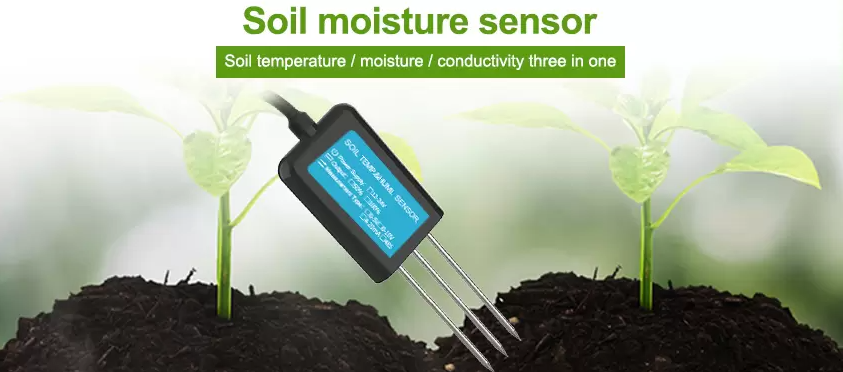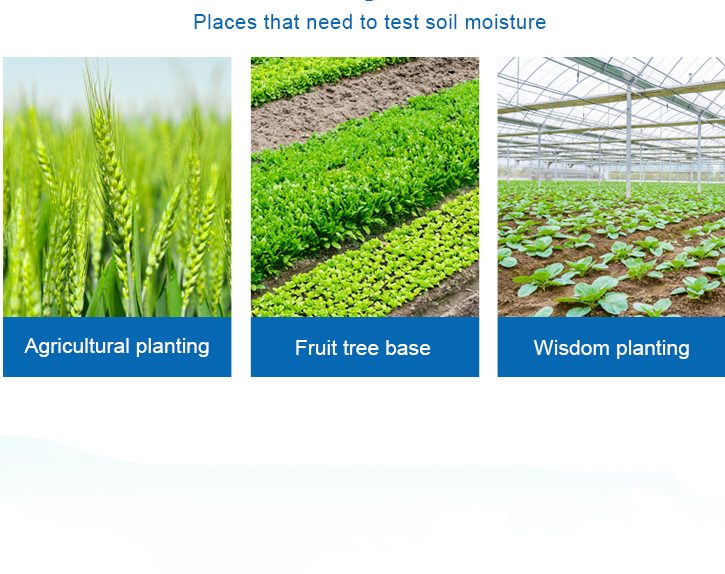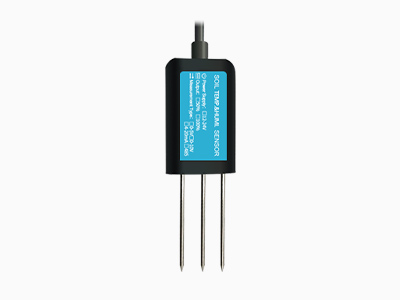Soil moisture sensor
The soil moisture sensor adopts the international new generation FDR measurement method, which can reach an accuracy of less than 3%. The electromagnetic non-contact measurement method, the soil moisture sensor will not drift with time, which greatly enhances the stability of the product and extends the service life.

Change agricultural water management
These sensors, which are becoming increasingly common in modern agricultural practices, have the ability to accurately measure the moisture content of soil, providing farmers with valuable insights into the health and fertility of their land. By allowing farmers to measure and manage soil moisture levels precisely, these sensors have the potential to revolutionize agricultural water management.
How the Soil moisture sensor works
Soil moisture sensors work by embedding a small sensor into the soil, which measures the amount of water present in the soil. These sensors can detect changes in soil moisture with a high degree of accuracy, enabling farmers to identify areas of the field that require additional watering or drainage. By providing real-time data on soil moisture levels, the sensors allow farmers to make informed decisions about watering practices, ensuring that their crops receive the right amount of water at the right time.
Application of Soil moisture sensor
The use of soil moisture sensors offers several key benefits to farmers. Firstly, by precisely measuring soil moisture levels, farmers can save water by only applying it where and when it is needed. This not only reduces water waste but also helps to keep costs down. Secondly, by monitoring soil moisture levels closely, farmers can identify potential problems with their irrigation systems or drainage patterns, enabling them to take corrective action quickly. Finally, accurate measurement of soil moisture levels can help farmers to optimize their crop rotation plans and increase yields through better management of soil fertility.

The use of soil moisture sensors is not limited to agricultural applications. Similar sensors are also being used in environmental research, monitoring soil erosion and runoff patterns in natural ecosystems. In addition, soil moisture sensors are also finding their way into urban landscaping and green roofs, where they help to optimize water usage and enhance the performance of urban ecosystems.
Conclusion
In conclusion, the development of soil moisture sensors represents a significant breakthrough in agricultural water management. By enabling precise measurement and management of soil moisture levels, these sensors have the potential to transform agricultural practices and improve food production worldwide. As we continue to grapple with the challenges of limited water resources and growing global demand for food, the role of these sensors in sustainable agricultural practices will become increasingly important.
By revolutionizing our approach to agricultural water management, soil moisture sensors offer a critical tool for ensuring our future food security and environmental sustainability.
